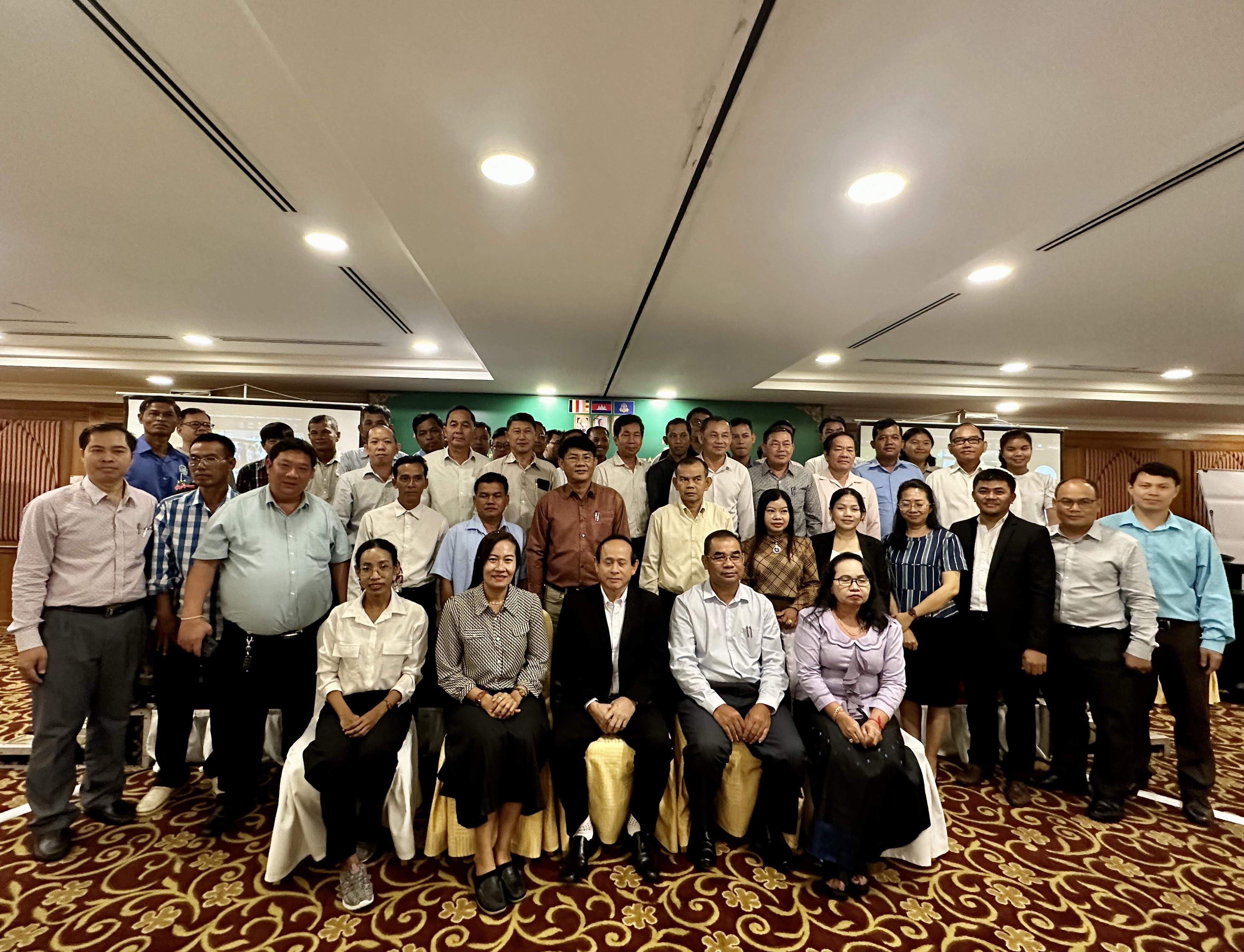March 2023, we are almost halfway through Phase 1 of the project “Strengthening the enabling environment for community animal health workers (CAHWs) through development of competency and curricula guidelines”, funded by the USAID’s Bureau for Humanitarian Assistance and for which VSF International is the technical partner of the World Organisation for Animal Health (WOAH, founded as OIE).
2023, we are almost halfway through Phase 1 of the project “Strengthening the enabling environment for community animal health workers (CAHWs) through development of competency and curricula guidelines”, funded by the USAID’s Bureau for Humanitarian Assistance and for which VSF International is the technical partner of the World Organisation for Animal Health (WOAH, founded as OIE).
This first year has been rich in experiences, and we are delighted to release today our first achievement: the report “A literature review of community animal health workers in Africa and Asia, with recommendations for improved practices“.
This literature review was conducted by our collaborator, Dr. Charles Hoots, from June to October 2022. Over 125 documents related to CAHWs and animal health services in 37 countries were analysed. On the basis of this literature review, it was possible to identify the strengths and weaknesses of current CAHW programmes, and to formulate recommendations for each category of stakeholder involved. The report is available in English and French.
In the coming months, VSF International will focus its efforts on coordinating in-depth country case studies on CAHW programmes. These case studies, including field visits, stakeholder interviews and a final validation workshop, will take place in Burundi, Cambodia, Niger, and South Sudan. These countries have been identified in consultation with VSF-International members and the WOAH project team in order to ensure a broad spectrum of contexts, in terms of livestock production systems, training, supervision relationships and business models. These case studies aim to assess the strengths and weaknesses of current approaches, based on the sustainability factors identified in the literature review, and to formulate recommendations for a more sustainable and effective integration of CAHWs into the animal health systems of these countries.
 As of the beginning of this year, WOAH convened its first meeting of the Ad Hoc Group of international experts, who are tasked with developing the competency and curricula guidelines for CAHWs. Regular meetings will be held over the coming months so that the experts can progressively define the minimum competencies expected for CAHWs and the training curriculum needed to achieve these competencies, based on an analysis of global training materials undertaken by a WOAH expert. The literature review and the observations from the case studies conducted by VSF International will provide additional input to the WOAH ad hoc group’s reflections.
As of the beginning of this year, WOAH convened its first meeting of the Ad Hoc Group of international experts, who are tasked with developing the competency and curricula guidelines for CAHWs. Regular meetings will be held over the coming months so that the experts can progressively define the minimum competencies expected for CAHWs and the training curriculum needed to achieve these competencies, based on an analysis of global training materials undertaken by a WOAH expert. The literature review and the observations from the case studies conducted by VSF International will provide additional input to the WOAH ad hoc group’s reflections.
Finally, we are aware that these achievements will only be valuable if they are truly made accessible and disseminated to stakeholders on the ground. This is why we are already thinking about future possibilities to develop communication materials that will facilitate the uptake of VSF-International’s recommendations and the adoption of WOAH competency and curricula guidelines for CAHWs.

This article was made possible through support provided by the Bureau for Humanitarian Assistance, U.S. Agency for International Development, under the terms of Award No. 720BHA21IO00330 “Strengthening the enabling environment for Community Animal Health Workers (CAHWs) through development of competency and curricula guidelines”. This award is implemented by the World Organisation for Animal Health (WOAH, founded as OIE) in collaboration with Vétérinaires Sans Frontières International (VSF-Int). The opinions expressed in this article are those of the author(s) and do not necessarily reflect the views of the U.S. Agency for International Development.





